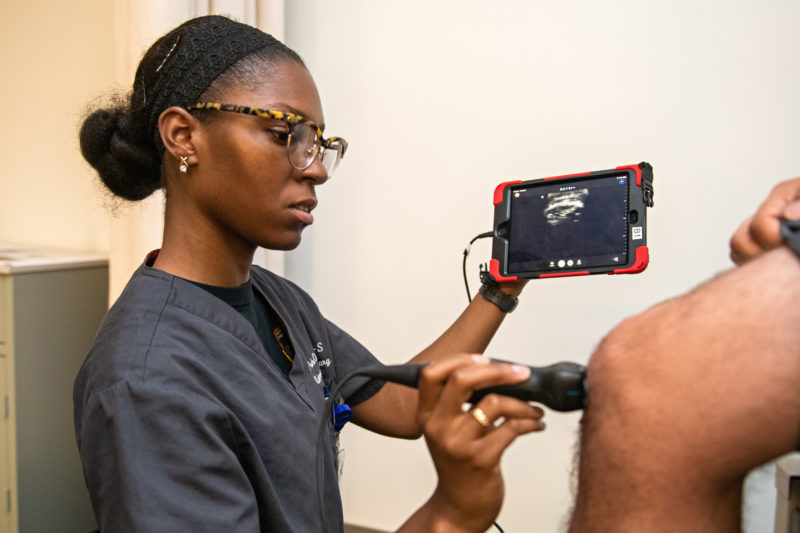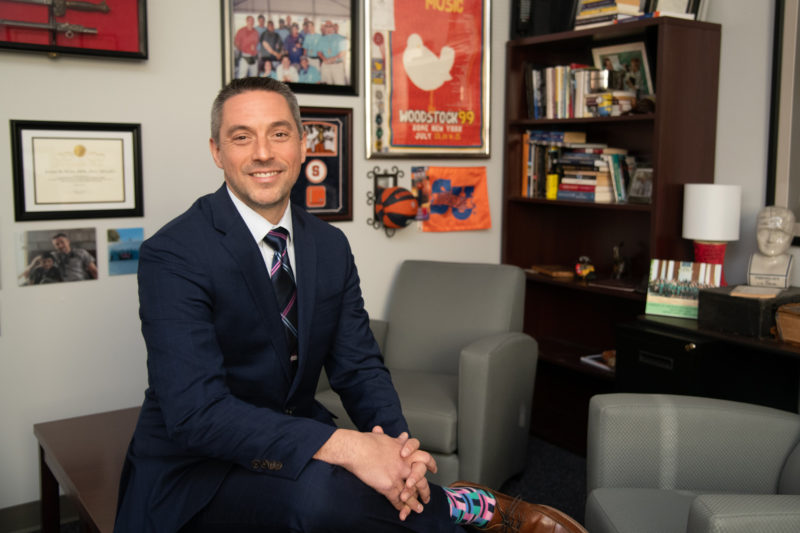
The University of Lynchburg has a new college. In June, Provost and Vice President for Academic Affairs Dr. Allison Jablonski announced the creation of the College of Medical Science. The college will serve as an umbrella for the University’s School of PA Medicine, which houses the Doctor of Medical Science and Master of PA Medicine programs.
Both were previously part of the College of Health Sciences, which will continue to include the Doctor of Physical Therapy, the Master of Public Health, the Master of Science in Athletic Training, and a number of undergraduate programs, including the School of Nursing.
“I’m very excited about this change,” Jablonski said. “Upon reviewing our academic structure, I’m confident this will streamline our teaching efforts in these two popular programs and will allow for growth as well.”
The new college will be led by Dean Dr. Jeremy Welsh and Associate Dean Dr. Jenna Rolfs. Welsh, who previously directed the DMSc and PA Medicine programs, is also in charge of a new office. He will lead the Office of Academic Strategy as associate vice president and associate provost of academic strategy, effective July 1.
According to Jablonski, this position is “responsible and accountable for building consistent policies and practices for student recruitment and matriculation, focused on professional and graduate students.”
The newly created office will “serve as the hub for academic excellence and innovation, potential academic revenue generation, and exploration and incubation of new academic programs, working in partnership with college deans and others,” Jablonski added.
Welsh, who’s headed up the University’s Innovation and Collaboration pillar as chief innovation officer and also serves as chief academic officer for the Community Access Network, is thrilled by the changes and his new role.

“We’re excited to build upon the success of the PA Medicine and Doctor of Medical Science programs with the College of Medical Science — or COMS,” Welsh said. “The creation of COMS will strengthen our current programs and create additional opportunities for growth.”
Welsh envisions new degree paths that will “strengthen the region’s health care providers and health care system with a focus on quality leadership.”
The new college, he added, will “continue to work with the community and regional partners to build solutions for health care disparity, access, and affordability to care.”
The changes come as a result of the University’s new strategic plan, which challenged the Office of Academic Affairs, among other things, to “optimize the structure of academic units/colleges/divisions.”
As part of this process, the University worked with Credo consultants to examine its academic structure since Lynchburg became a university in 2018.
“It’s no easy task to transform a growing college into a university, and we took this opportunity to assess after almost four years as a university,” Jablonski said. “After reviewing admissions, financial aid, and others, Credo was incredibly helpful in pinpointing exactly how we can be most effective on the academic side.”
The new college and leadership position are part of a comprehensive list of recommendations that include streamlining the structure of academic affairs, combining graduate and undergraduate admissions, and launching a search for a new dean of the College of Arts and Sciences. The latter will help “deepen and strengthen the liberal arts,” according to Jablonski.
Academic affairs is tackling these recommendations in three phases, with Phase 1 already underway. All changes should be in place by July 2023.

